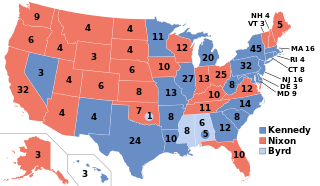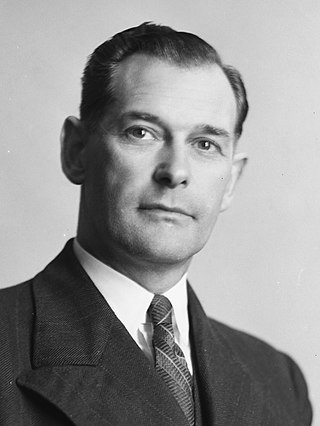| ||||||||||||||||
All 87 seats in the Slovak National Council | ||||||||||||||||
|---|---|---|---|---|---|---|---|---|---|---|---|---|---|---|---|---|
| ||||||||||||||||
| ||||||||||||||||
Parliamentary elections were held in Slovakia on 12 June 1960, [1] alongside national elections. All 87 seats in the National Council were won by the National Front.
| ||||||||||||||||
All 87 seats in the Slovak National Council | ||||||||||||||||
|---|---|---|---|---|---|---|---|---|---|---|---|---|---|---|---|---|
| ||||||||||||||||
| ||||||||||||||||
Parliamentary elections were held in Slovakia on 12 June 1960, [1] alongside national elections. All 87 seats in the National Council were won by the National Front.
| Party or alliance | Votes | % | Seats | |||
|---|---|---|---|---|---|---|
| National Front | Communist Party of Slovakia | 2,511,281 | 99.79 | 45 | ||
| Party of Slovak Revival | 7 | |||||
| Freedom Party | 4 | |||||
| Independents and others | 31 | |||||
| Against | 5,296 | 0.21 | – | |||
| Total | 2,516,577 | 100.00 | 87 | |||
| Valid votes | 2,516,577 | 99.77 | ||||
| Invalid/blank votes | 5,804 | 0.23 | ||||
| Total votes | 2,522,381 | 100.00 | ||||
| Registered voters/turnout | 2,532,813 | 99.59 | ||||
| Source: PSP | ||||||

The 1960 United States presidential election was the 44th quadrennial presidential election, held on Tuesday, November 8, 1960. The Democratic ticket of Senator John F. Kennedy and his running mate, Senate Majority Leader Lyndon B. Johnson, narrowly defeated the Republican ticket of incumbent Vice President Richard Nixon and his running mate, U.N. Ambassador Henry Cabot Lodge Jr. This was the first election in which 50 states participated, marking the first participation of Alaska and Hawaii, and the last in which the District of Columbia did not. This made it the only presidential election in which the threshold for victory was 269 electoral votes. It was also the first election in which an incumbent president—in this case, Dwight D. Eisenhower—was ineligible to run for a third term because of the term limits established by the 22nd Amendment.

The 1964 United States presidential election was the 45th quadrennial presidential election. It was held on Tuesday, November 3, 1964. Incumbent Democratic President Lyndon B. Johnson defeated Republican Senator Barry Goldwater in a landslide victory. Johnson was the fourth and most recent vice president to succeed the presidency following the death of his predecessor and win a full term in his own right. Johnson won the largest share of the popular vote for the Democratic Party in history at 61.1%. As of 2024, this remains the highest popular vote percentage of any candidate since the advent of widespread popular elections in 1824.

The Twenty-third Amendment to the United States Constitution extends the right to participate in presidential elections to the District of Columbia. The amendment grants to the district electors in the Electoral College, as though it were a state, though the district can never have more electors than the least-populous state. How the electors are appointed is to be determined by Congress. The Twenty-third Amendment was proposed by the 86th Congress on June 16, 1960; it was ratified by the requisite number of states on March 29, 1961.

The Kenya African National Union (KANU) is a Kenyan political party that ruled for nearly 40 years after Kenya's independence from British colonial rule in 1963 until its electoral loss in 2002. It was known as Kenya African Union (KAU) from 1944 but due to pressure from the colonial government, KAU changed its name to Kenya African Study Union (KASU) mainly because all political parties were banned in 1939 following the start of the Second World War. In 1946 KASU rebranded itself into KAU following the resignation of Harry Thuku as president due to internal differences between the moderates who wanted peaceful negotiations and the militants who wanted to use force, the latter forming the Aanake a forty, which later became the Mau Mau. His post was then occupied by James Gichuru, who stepped down for Jomo Kenyatta in 1947 as president of KAU. The KAU was banned by the colonial government from 1952 to 1960. It was re-established by James Gichuru in 1960 and renamed KANU on 14 May 1960 after a merger with Tom Mboya's Kenya Independence Movement.

The 1960 United States Senate elections coincided with the election of John F. Kennedy as president on November 8, 1960. The 33 seats of Class 2 were contested in regular elections. A special election was also held on June 28, 1960, for a mid-term vacancy in North Dakota where Democrats flipped a seat to expand their majority to 66–34. As Majority Leader Lyndon Johnson was elected Vice President, Mike Mansfield became the new majority leader.

The 1960 New Zealand general election was a nationwide vote to determine the shape of the New Zealand Parliament's 33rd term. It saw the governing Labour Party defeated by the National Party, putting an end to the short second Labour government.

The 1960 United States House of Representatives elections was an election for the United States House of Representatives on November 8, 1960, to elect members to serve in the 87th United States Congress. They coincided with the election of President John F. Kennedy and was the first house election to feature all 50 current U.S. states.
A bellwether is a leader or an indicator of trends.
The Progressive Party was a left-wing political party in the United States that served as a vehicle for the campaign of Henry A. Wallace, a former vice president, to become President of the United States in 1948. The party sought racial desegregation, the establishment of a national health insurance system, an expansion of the welfare system, and the nationalization of the energy industry. The party also sought conciliation with the Soviet Union during the early stages of the Cold War.
Parliamentary elections were held in Ceylon on 19 March 1960.

The 1960 United States presidential election in California took place on November 8, 1960, as part of the 1960 United States presidential election. State voters chose 32 representatives, or electors, to the Electoral College, who voted for president and vice president.

From March 8 to June 7, 1960, voters of the Republican Party chose its nominee for president in the 1960 United States presidential election. Incumbent Vice President Richard Nixon was selected as the nominee through a series of primary elections and caucuses culminating in the 1960 Republican National Convention held from July 25 to July 28, 1960, in Chicago, Illinois.

The 1960 United States presidential election in Pennsylvania took place on November 8, 1960 as part of the 1960 United States presidential election. Voters chose 32 representatives, or electors to the Electoral College, who voted for president and vice president.

The 1960 United States elections were held on November 8, and elected the members of the 87th United States Congress. Democratic Senator John F. Kennedy narrowly defeated Republican incumbent Vice President Richard Nixon in the presidential election, and although Republicans made gains in both chambers of Congress, the Democratic Party easily maintained control of Congress.

The 33rd New Zealand Parliament was a term of the New Zealand Parliament. It was elected at the 1960 general election on 26 November of that year.

The 1960 United States presidential election in Alabama was held on November 8, 1960 as part of that year's national presidential election. Eleven Democratic electors were elected, of whom six voted for Senator Harry F. Byrd of Virginia and five for Senator John F. Kennedy of Massachusetts.

The Kerala Legislative Assembly election of 1960 was the second assembly election in the Indian state of Kerala. The elections were held on 1 February 1960.

The 1960 United States Senate election in Louisiana took place on November 8, 1960. Incumbent Democratic Senator Allen J. Ellender won re-election to a fifth term.

The 1960 Illinois gubernatorial election was held in Illinois on November 8, 1960.